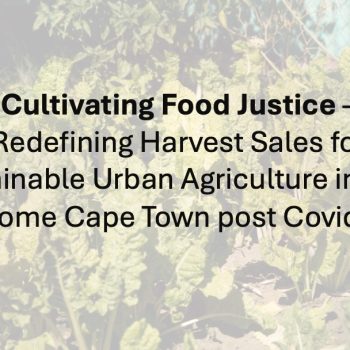On the 24-25 June 2009 the inaugural South African Cities Conference took place at the University of Witwatersrand. It represented a partnership between ACC and the CUBES and grew out of a shared recognition that a regular forum for academic exchange between South(ern) African scholars of cities was long overdue.
Until recently, urban scholars could only find platforms to present their research and engage each other at their disciplinary conferences. Given that most of the pertinent urban questions are interdisciplinary in nature it was obvious that we needed to create a regularised forum where research could be presented and discussed across traditional disciplinary boundaries in order to enrich current work but also to generate new and better research agendas.
Apart from creating a dynamic platform for interdisciplinary scholarly engagement, there was clearly also a need to make academic conferences more dynamic by opening up participation to ‘urban practitioners’ whether they be from the state, private sector or social movements. In fact, since much of contemporary urban scholarship in one form or another seeks to contribute to broader societal goals of great equity and justice, it is fitting that scholars also open up their work and debates to a larger audience with a vested interests in the issues under discussion. This can only enrich and deepen the quality of contemporary scholarship.
Another important objective of this initiative is to actively invest in the promotion of a new generation of urban scholars. A cursory glance across books and journals suggest that in common with many other fields, there has been very little renewal of the core community of urban scholars operative since the 1970s and 1980s. Given the ways in which the field and the various sub-debates have been forged in the cauldron of the anti-apartheid struggle and ethical positioning, it is probably essential that 15 years after political democratisation we make space for a raft of new experiences and perspectives that do not necessarily have the same epistemic anchors and starting points. In this light it is important that this initiative becomes over time a platform for younger and diverse scholars to come to the fore and leave their mark on the wide field of city studies.


